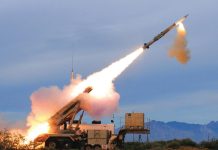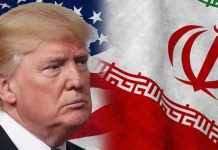Washington should not sell its advanced F-35 fighter jets to Turkey if Ankara moves ahead with plans to buy advanced S-400 Missile defence system from Russia. The US fears that F-35 fighter jets would be tested against the Russian S-400 missiles which can endanger the security of NATO nations.
North Korea Restoring Ballistic Missile Launch Site After Failed Talks With US: South Korea
Testifying before the Senate Armed Services Committee on Tuesday, General Curtis Scaparrotti said it would be his “best military advice” that the United States does not sell Lockheed Martin Corp F-35 jets to NATO ally Turkey unless Ankara drops plans to purchase Russia-built S-400 surface-to-air missile defense systems.
“If they accept the S-400 to establish it in Turkey, there is first the issue that it’s not interoperable with NATO systems, nor is it interoperable inside of our integrated missile defense system. The second has to do with the F-35. It presents a problem to all of our aircraft, but specifically the F-35, I believe,” Scaparrotti said during the Senate hearing.
“My best military advice would be that we don’t then follow through with the F-35, flying it or working with an ally that’s working with Russian systems, particularly air defense systems, with what I would say is probably one of most advanced technological capabilities,” he added. “I would hope that they [Turkey] would reconsider this one decision on the S-400.”
The US general also warned that there could be potential consequences in the wake of the purchase deal with Russia, namely, no future foreign military sales between Washington and Ankara.
Additionally, the US State Department later in the day said Washington has made clear to Turkey that Ankara’s participation in the F-35 fighter program would be reassessed if it preceded with the purchase of Russian air defense systems.
“If Turkey acquires the S-400, it will not receive the Patriot,” State Department spokesman Robert Palladino told a briefing.
“We have clearly warned Turkey that its potential acquisition of the S-400 will result in reassessment of Turkey’s participation in the F-35 program, and risk other potential future arms transfers to Turkey, as well as lead to potential actions under Countering America’s Adversaries through Sanctions Act upon any government entities, private industry, or individuals involved in such a transaction,” the spokesperson added.
The remarks came a day after the United States sent out a stark warning to Turkey over its plan to buy the advanced Russian-built S-400 air defense missile systems.
“Turkey’s acquisition of the Russian S-400 air defense system will have grave consequences for the US defence relationship with Turkey,” Pentagon Spokesperson Eric Pahon said.
Moscow and Ankara finalized an agreement on the delivery of the S-400 missile systems in December 2017. Back in April last year, Turkish President Recep Tayyip Erdogan and his Russian counterpart Vladimir Putin said in Ankara that they had agreed to expedite the delivery of S-400 missile systems. At the time it was said that the delivery could be made between late 2019 and early 2020.
Earlier, Erdogan had stressed that his country “has a right to use different air defense systems” and that other parties have no right whatsoever to criticize Ankara for its military purchases.
The deal has drawn concerns among some of Turkey’s NATO allies, particularly the US, who claim the missile batteries are not compatible with those of the military alliance and that the purchase could jeopardize Ankara’s acquisition of American Lockheed Martin Corp F-35 fighter jets and possibly result in US sanctions.
The S-400 system, whose full name is the Triumph Mobile Multiple Anti-Aircraft Missile System (AAMS), is an advanced Russian missile system designed to detect, track, and destroy planes, drones, or missiles as far as 402 kilometres away. It has previously been sold only to China and India.
Turkey is striving to boost its air defence, particularly after Washington decided in 2015 to withdraw its Patriot surface-to-air missile system from Turkey’s border with Syria, a move that weakened Turkey’s air defence.
Nevertheless, the US State Department in December last year approved a possible $3.5 billion sale of Patriot missile systems to Turkey, after notifying Congress of the certification.
Before gravitating towards Russia, the Turkish military reportedly walked out of a $3.4 billion contract for a similar Chinese system. The withdrawal took place under purported pressure from Washington.
Ankara’s ties with its Western allies in NATO have been strained over a range of issues. Erdogan has been critical of Washington for supporting Kurdish groups in Syria that he says are responsible for terror attacks inside Turkey.
More News at EurAsian Times
- Indian Military Base in Sabang can Strangle China at the Strait of Malacca
- Why is Japan Unhappy with Bullet Train Project in India?
- Is Saudi-UAE Alliance Working to Weaken the Gulf Cooperation Council?
- India-Japan Defence Partnership Aggressively Countering China
- Oman-UAE Relations Deteriorate; Muscat Warns Against Testing Patience






